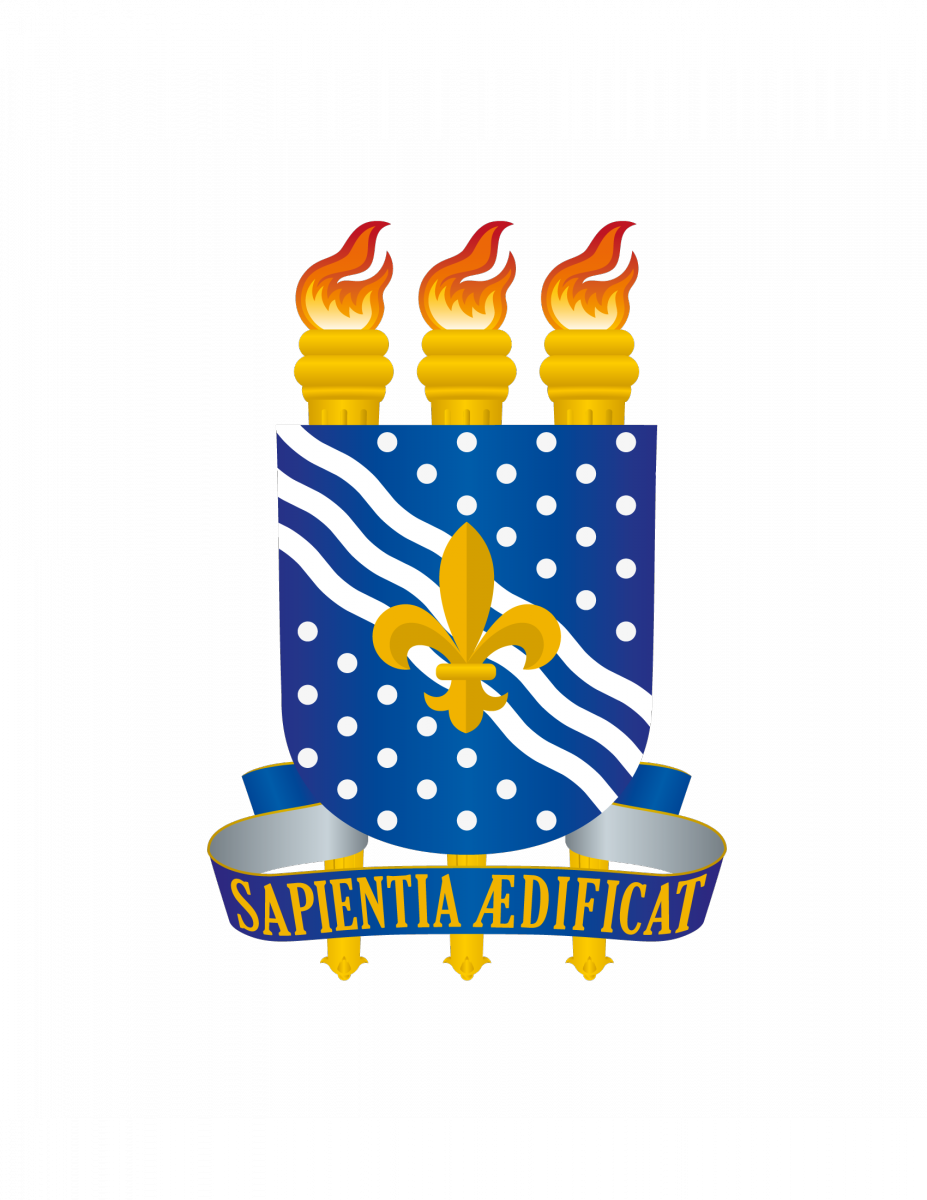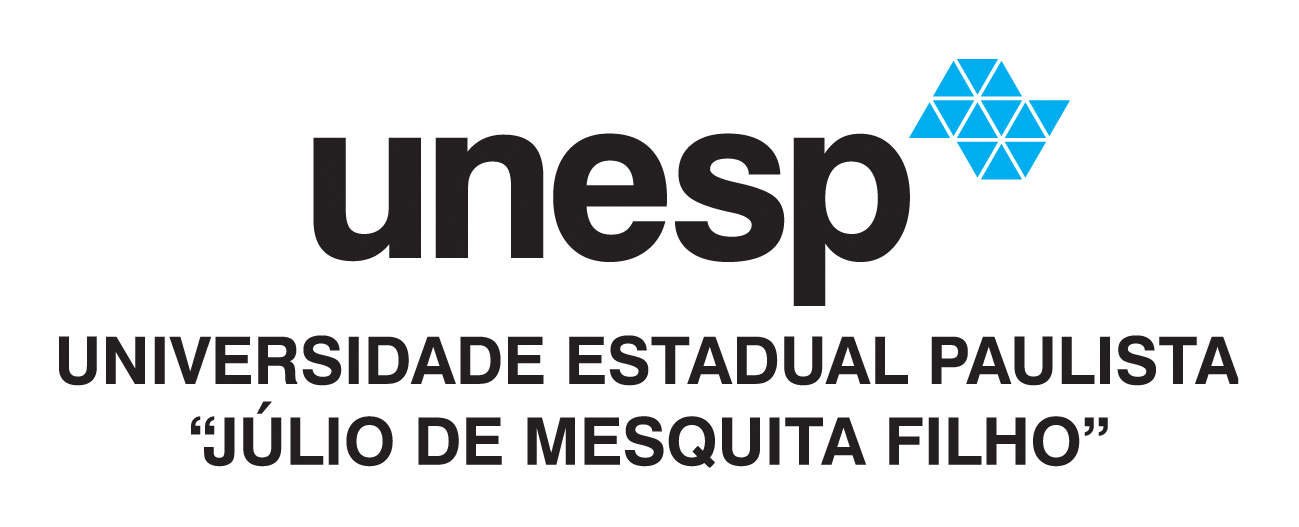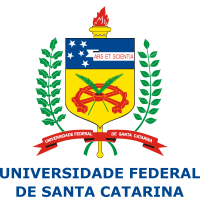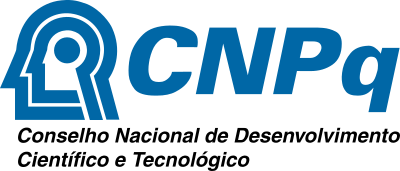Information, Data and Technology
Guilherme Ataíde Dias
Federal University of Paraíba (UFPB) | guilhermeataide@ccsa.ufpb.br | https://orcid.org/0000-0001-6576-0017 | https://lattes.cnpq.br/9553707435669429
Undergraduate in Computer Science from the Federal University of Paraíba UFPB Campus II (1990), Bachelor in Law by the University Center of João Pessoa UNIPE (2010), Master in Organization & Management by Central Connecticut State University? CCSU (1995), PhD in Information Science (Communication Sciences) at the University of São Paulo? USP (2003) and Post-Doctor by UNESP (2011). He is currently Associate Professor III at the Federal University of Paraíba, where he holds a degree in Information Science. He is involved with Post-Graduation through the Post-Graduate Program in Information Science and Postgraduate Program in Administration, both of UFPB. Has research interest in the following themes: Knowledge Representation; Information Architecture; Information security; Information and Communication Technologies; Health Information; Social networks; Free software; Law, Ethics and Intellectual Property in Cyberspace; Scientific Data Management; Legal Information; He is currently Research Productivity Scholar (PQ) at CNPq.
Moisés Lima Dutra
Federal University of Santa Catarina (UFSC) | moises.dutra@ufsc.br | https://orcid.org/0000-0003-1000-5553 | https://lattes.cnpq.br/1973469817655034
Professor, Federal University of Santa Catarina, Department of Information Science. PhD in Computing from the University of Lyon 1, France (2009). Master in Electrical Engineering, subarea Automação e Sistemas (2005) and Bachelor in Computing (1998) from the Federal University of Santa Catarina. His current lines of research are related to Applied Artificial Intelligence (Machine Learning, Deep Learning, Semantic Web, Linked Data) and Data Science (Big Data, IoT). It is linked to the research group ITI-RG (Intelligence, Technology and Information - Research Group).
Fábio Mosso Moreira
São Paulo State University (UNESP) | fabio.moreira@unesp.br | https://orcid.org/0000-0002-9582-4218 | https://lattes.cnpq.br/1614493890723021
Undergraduate degree in Business Administration from the Faculty of Sciences and Engineering (UNESP / Tupã). Master degree in Information Science - (UNESP / Marília). PhD student in the Graduate Program in Information Science (UNESP / Marília). Member of the Research Group - GPNTI (UNESP / Marília) and GPTAD (UNESP / Tupã). Collaborator of the Project Digital Skills for Family Farming (CoDAF). Content editor of the Electronic Journal Digital Skills for Family Farming (RECoDAF). Professional Technical Skill in Informatics from ETEC Massuyuki Kawano - Centro Paula Souza de Tupã. Professional experience in the ERP Information Systems for Logistics Operations. Works with research in Information Science, studying the use of digital resources for access to government data of Public Policies in the context of the small farmer.
Fernando de Assis Rodrigues
Federal University of Pará (UFPA) | fernando@rodrigues.pro.br | https://orcid.org/0000-0001-9634-1202 | https://lattes.cnpq.br/5556499513805582
Professor at Federal University of Pará. Ph.D. and M.S. in Information Science, Post-bachelor in Internet Systems and Bachelor of Science in Information Systems. Most of his experience is based on works developed as a Full Stack Developer and Database administrator, especially with Python, Java and PHP programming languages, as well as MySQL, MariaDB, SQLite3 and PostgreSQL databases. Also, he lectured classes related to the context of Computer Science to undergraduate and graduate students at UNESP. Currently, He workd as a postdoc researcher at UNESP labs, working in data studies.
Ricardo César Gonçalves Sant'Ana
São Paulo State University (UNESP) | ricardo.santana@unesp.br | https://orcid.org/0000-0003-1387-4519 | https://lattes.cnpq.br/1022660730972320
Associate Professor at the Paulista State University - UNESP, Faculty of Sciences and Engineering - FCE, Campus de Tupã, on an exclusive dedication, where he is Chairman of the Monitoring and Evaluation Committee of the Graduate Courses - CAACG, Local Coordinator of the Center for Studies and Pedagogical Practices - CENEPP and Local Ombudsman. Professor of the Post-Graduate Program in Information Science of the Paulista State University, Marília Campus. Graduated in Mathematics and Pedagogy, Master in Information Science (2002), Doctorate in Information Science (2008) and Freelance in Management Information Systems by UNESP (2017). He has specialized in Object Orientation (1996) and Management of Information Systems (1998). Ad hoc advisor of periodicals and development agencies. Member of the Research Group - New Technologies in Information GPNTI-UNESP. Has experience in the area of ??Computer Science, currently conducts research focused on: information science and information technology, investigating issues related to the Data Life Cycle, Transparency and Information Flow in Productive Chains. He worked as a professor at Faccat Faculdade de Ciências Contábeis e Administração de Tupã, where he coordinated a course of Administration with Qualification in Systems Analysis for ten years and the course of Licenciatura in Computing. He worked in the private sector as a consultant, integrator and researcher of new information technologies from 1988 to 2004.
Organizators
Guilherme Ataíde Dias
Federal University of Paraíba (UFPB) | guilhermeataide@ccsa.ufpb.br | https://orcid.org/0000-0001-6576-0017 | https://lattes.cnpq.br/9553707435669429
Undergraduate in Computer Science from the Federal University of Paraíba UFPB Campus II (1990), Bachelor in Law by the University Center of João Pessoa UNIPE (2010), Master in Organization & Management by Central Connecticut State University? CCSU (1995), PhD in Information Science (Communication Sciences) at the University of São Paulo? USP (2003) and Post-Doctor by UNESP (2011). He is currently Associate Professor III at the Federal University of Paraíba, where he holds a degree in Information Science. He is involved with Post-Graduation through the Post-Graduate Program in Information Science and Postgraduate Program in Administration, both of UFPB. Has research interest in the following themes: Knowledge Representation; Information Architecture; Information security; Information and Communication Technologies; Health Information; Social networks; Free software; Law, Ethics and Intellectual Property in Cyberspace; Scientific Data Management; Legal Information; He is currently Research Productivity Scholar (PQ) at CNPq.
Moisés Lima Dutra
Federal University of Santa Catarina (UFSC) | moises.dutra@ufsc.br | https://orcid.org/0000-0003-1000-5553 | https://lattes.cnpq.br/1973469817655034
Professor, Federal University of Santa Catarina, Department of Information Science. PhD in Computing from the University of Lyon 1, France (2009). Master in Electrical Engineering, subarea Automação e Sistemas (2005) and Bachelor in Computing (1998) from the Federal University of Santa Catarina. His current lines of research are related to Applied Artificial Intelligence (Machine Learning, Deep Learning, Semantic Web, Linked Data) and Data Science (Big Data, IoT). It is linked to the research group ITI-RG (Intelligence, Technology and Information - Research Group).
Fábio Mosso Moreira
São Paulo State University (UNESP) | fabio.moreira@unesp.br | https://orcid.org/0000-0002-9582-4218 | https://lattes.cnpq.br/1614493890723021
Undergraduate degree in Business Administration from the Faculty of Sciences and Engineering (UNESP / Tupã). Master degree in Information Science - (UNESP / Marília). PhD student in the Graduate Program in Information Science (UNESP / Marília). Member of the Research Group - GPNTI (UNESP / Marília) and GPTAD (UNESP / Tupã). Collaborator of the Project Digital Skills for Family Farming (CoDAF). Content editor of the Electronic Journal Digital Skills for Family Farming (RECoDAF). Professional Technical Skill in Informatics from ETEC Massuyuki Kawano - Centro Paula Souza de Tupã. Professional experience in the ERP Information Systems for Logistics Operations. Works with research in Information Science, studying the use of digital resources for access to government data of Public Policies in the context of the small farmer.
Fernando de Assis Rodrigues
Federal University of Pará (UFPA) | fernando@rodrigues.pro.br | https://orcid.org/0000-0001-9634-1202 | https://lattes.cnpq.br/5556499513805582
Professor at Federal University of Pará. Ph.D. and M.S. in Information Science, Post-bachelor in Internet Systems and Bachelor of Science in Information Systems. Most of his experience is based on works developed as a Full Stack Developer and Database administrator, especially with Python, Java and PHP programming languages, as well as MySQL, MariaDB, SQLite3 and PostgreSQL databases. Also, he lectured classes related to the context of Computer Science to undergraduate and graduate students at UNESP. Currently, He workd as a postdoc researcher at UNESP labs, working in data studies.
Ricardo César Gonçalves Sant'Ana
São Paulo State University (UNESP) | ricardo.santana@unesp.br | https://orcid.org/0000-0003-1387-4519 | https://lattes.cnpq.br/1022660730972320
Associate Professor at the Paulista State University - UNESP, Faculty of Sciences and Engineering - FCE, Campus de Tupã, on an exclusive dedication, where he is Chairman of the Monitoring and Evaluation Committee of the Graduate Courses - CAACG, Local Coordinator of the Center for Studies and Pedagogical Practices - CENEPP and Local Ombudsman. Professor of the Post-Graduate Program in Information Science of the Paulista State University, Marília Campus. Graduated in Mathematics and Pedagogy, Master in Information Science (2002), Doctorate in Information Science (2008) and Freelance in Management Information Systems by UNESP (2017). He has specialized in Object Orientation (1996) and Management of Information Systems (1998). Ad hoc advisor of periodicals and development agencies. Member of the Research Group - New Technologies in Information GPNTI-UNESP. Has experience in the area of ??Computer Science, currently conducts research focused on: information science and information technology, investigating issues related to the Data Life Cycle, Transparency and Information Flow in Productive Chains. He worked as a professor at Faccat Faculdade de Ciências Contábeis e Administração de Tupã, where he coordinated a course of Administration with Qualification in Systems Analysis for ten years and the course of Licenciatura in Computing. He worked in the private sector as a consultant, integrator and researcher of new information technologies from 1988 to 2004.
Signs and love: an informational strategy to exist on Instagram
Pages: 350 - 362
Authors
Tassyara Onofre de Oliveira
Federal University of Paraíba (UFPB) | tassyjp@gmail.com | https://lattes.cnpq.br/5328618364332415
PhD student in Information Science at the Post-Graduate Program in Information Science, Federal University of Paraíba. Master's degree in the Graduate Program in Management in Learning Organizations, in the line of Research for Project Management and Emerging Technologies, by the Federal University of Paraíba. Specialization in Constitutional Law and Electronic Law, by Cândido Mendes University. Graduated in Law, by the University Center of João Pessoa. Has experience in the area of Law, Management and Technologies with emphasis on personal data protection in the Brazilian legal system, data management, ethics-oriented technologies, social responsibility, information and knowledge management, democratization, uses and impacts of information.
Matheus José Pessoa de Andrade
Federal University of Paraíba (UFPB) | theujp@hotmail.com | https://lattes.cnpq.br/6550728746243858
Professor at Communication Department of the Federal University of Paraíba, of the baccalaureate of cinema and audiovisual, in the area of cinematographic photography, current course coordinator. Area of interest: moving photographic image, cinematographic documentary, cinema and censorship. Master in Linguistics and Portuguese Language at the UFPB; specialist in Cultural Journalism by FIP; and graduated in Social Communication - Radialismo - also by UFPB. He is also audiovisual director documentarist and professional musician (bass player), composer, arranger, director and music producer.
Video Transcription
O nosso trabalho faz parte do II Workshop Informações, Dados e Tecnologia, realizado na Universidade Federal da Paraíba no ano de 2018, intitulado de “Letreiros e amores: uma estratégia informacional para existir no Instagram”.
Os letreiros construídos nas cidades parelha a sua função estrutural, parelha a sua função na cidade, considerando como estratégia que as cidades de hoje em dia fazem para existir no universo online, principalmente a partir de redes sociais como o Instagram. Então nossa questão é: qual a função informacional desses letreiros em tempo de instagram?
Apresentando a nossa pesquisa considerando o objeto é de cunho bibliográfico, buscando traçar um histórico sobre o objeto e algumas questões sobre ele, como também uma investigação exploratória descritiva com o uso da ferramenta hashtag para coleta de dados.
Nosso trabalho começa discutindo sobre redes sociais, como espaço de sociabilidade, redes sociais que existiam por exemplo nas calçadas das casas e agora tem essa conotação virtual no espaço online como as redes sociais Facebook, Twitter, Instagram, são algumas redes que a gente pode referenciar.
Nossa centralidade é o Instagram, então pensando em um universo que constitui dentro da rede social do Instagram, é importante a gente pensar como um espaço também com valores de sociabilidade como os nossos, onde hoje em dia estar no Instagram, estar em uma rede social é não só uma função de existência, uma forma não só de estar lá mas também de acumular um capital simbólico, como a partir dos “likes” a partir das visualizações dos nossos canais. Então a gente parte deste princípio e vamos tendo outros autores, reflexões, acerca do universo da fotografia, ela muda a sociedade de tal maneira, que tem que ser pensado que tudo na sociedade passa a ser fotografável. Tudo potencialmente pode virar uma fotografia e em tempos de redes sociais como o Instagram, que é uma rede social predominante uma rede de fotografia, uma rede social que o canal fotografia é uma das estratégias, mas que ganham uma visibilidade de acesso muito maior que seriam na nossa sala de casa, nos espaços que normalmente colocarem as nossas fotografias.
Então neste sentido, a gente constrói uma reflexão acerca desses valores sociais e pensa que esse surto de letreiros sociais que surgem em algumas cidades, nas mais diversas cidades pequenas e grandes, eles estão lá não apenas para aprender uma questão digamos assim da própria cidade, uma questão física do universo urbano, mas também para fazer com que aqueles espaços existam nessa disputa de capital simbólico que é o Instagram, a partir dos interesses que as cidades têm, considerando seus letreiros.
Para compreender melhor nosso objeto, precisamos falar sobre a Instagramlização das coisas. Letreiros como o de Hollywood, Amsterdam e Cancún se tornaram figurinhas dos álbuns dos fotógrafos viajantes, os letreiros foram inesgotavelmente fotografados. Com potencialização digital e a popularização do Instagram, pessoas, coisas e lugares, foram se transformando em espaços digitais, como por exemplo restaurantes e bares que modificaram seus ambientes e cenários para se tornarem potencialmente fotografáveis, ou seja, Instagramaveis, com o objetivo de serem publicados nos mais diversos perfis.
Neste sentido para uma análise de caso, nós consideramos o letreiro da cidade de João Pessoa, que fica localizado no busto de Tamandaré, é um letreiro “Eu Amo Jampa” criado em 2015, para tanto nós usamos a ferramenta hashtag a fim de fazer uma análise quantitativa sobre a circulação deste material no Instagram.
Este diagnóstico é um subsídio para justificar a importância da gente pensar os letreiros enquanto fluxo informacional, principalmente em tempos de Instagram, talvez eles deem projeções muito mais importantes para as cidades no universo online do que no próprio espaço físico que não sendo fotografável.
Diante do que foi exposto, acreditamos, que os letreiros das cidades são estratégias de informação eficientes para que os lugares sejam registrados online e consequentemente na rede Instagram.




